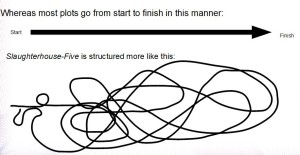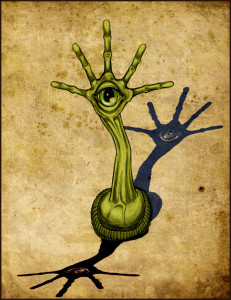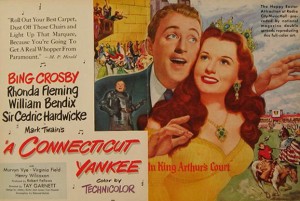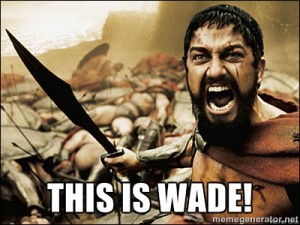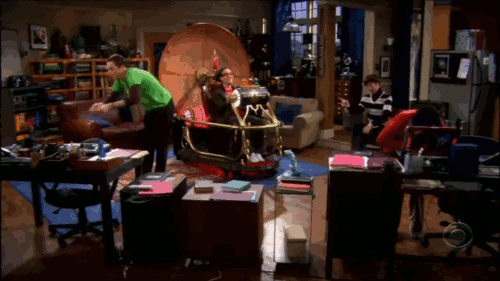All-Time Top 7 Time Travelers in Literature
By Tiffany Foster
Mankind has always been fascinated by the concept of time. It’s how we know our meeting is running too long or when our popcorn is done. Time travel has hooked us into books, television shows, and movies for as long as each medium has existed.

If we didn’t love time travel so much, Doctor Who would’ve been canceled decades ago. Well, it was. . . but they brought it back!
For centuries, our literature has questioned how time effects humanity, and how we would be affected if we could manipulate time. Readers obsession with time travel has strong foundations in classic and modern literature, and here are some of our favorite travelers in time.
Hermione Granger from Harry Potter and the Prisoner of Azkaban by J.K. Rowling
In the biggest nerd move in history, Hermione becomes a time traveler in order to make it to all of her classes. However, when faced with the execution of an innocent man, Hermione and Harry break every rule about time travel in order to save Sirius Black. Hermione, entirely anxious about paradoxes, manages to save the day with her knowledge of the future and avoids any irreconcilable paradoxes, once again proving her absolute brilliance. #brightestwitchofherage
What is amazing about Hermione as a time traveler is her knowledge and strategic manipulation of time. Most time travelers find themselves in another time by accident and have next to no control over where they are and what happens to them. Hermione respects the power of time travel, and she manipulates it with extreme care. She could’ve used the Time-Turner to win bets, cheat on her exams, or at least do this one more time. . .

. . . But noble Hermione’s only abuse of time travel is to save someone she doesn’t even really know.
Billy Pilgrim from Slaughterhouse Five by Kurt Vonnegut
Vonnegut’s character Billy Pilgrim is a leaf on the breeze as he bounces from time to time with absolutely no control. Billy hops from his time serving in WWII to his abduction by extraterrestrials.
The alien Tralfamadorians, who see all of time existing simultaneously, and Billy begins to see time similarly. Also, the Tralfamadorians look like this:
What makes Billy Pilgrim a unique time traveler is his complete lack of control. Often times in science fiction, time travel is a way to try to control what no one should. Billy in no way affects or changes time, and he holds no authority over time. Instead, Billy believes there is almost no use in trying to control time at all. So it goes. However, Vonnegut suggests Billy’s apathy is wrong by making us uncomfortable with Billy’s acceptance of the inevitable.
Hank Morgan from A Connecticut Yankee in King Arthur’s Court by Mark Twain
Thrown into King Arthur’s Court, Hank is the epitome of know-it-all American mentality. During his time in the past, he proceeds to completely revolutionize and simultaneously destroy King Arthur’s Court. Hank’s transformation of the Middle Ages begins with his introduction of technology that he uses to convince everyone he is a wizard – which doesn’t fly with Merlin because he doesn’t like Hank moving in on his turf. Ultimately, this pissing contest climaxes in a Tarantino-style bloodbath. Yeah, you’re right – that didn’t happen in the Bing Crosby movie.
Hank’s my-way-or-the-highway approach to time travel is emphasized in more modern (and silly) interpretations of Connecticut Yankee in films like Army of Darkness and A Kid in King Arthur’s Court.

Similar to Eckels from “Sound of Thunder” (who’s later on our list), Hank is arrogant in his manipulation of time and hardly considers the consequences of his actions. Ultimately, both characters destroy society.
Dana Franklin from Kindred by Octavia Butler
Dana is different from our other time travelers because she travels within the timeline of her ancestors. Living in the 1970’s, she is suddenly taken back to the 1800’s where she encounters her slave and slave-owner ancestors. She is pulled back and forth between times, and she even manages to bring her husband with her. She becomes a great influence in her ancestor Rufus’s life by repeatedly saving his life, despite the fact that he is a slave-owner and a rapist.
Dana is an amazing time traveler because she has a strong and meaningful influence on her ancestors and ultimately her own future. Although she is pulled back into the past unwillingly, she finds a purpose there and does her best to maintain her ancestry.
Eckels from “Sound of Thunder” by Ray Bradbury
Eckels is very similar to Hank Morgan and is the exact opposite of Hermione and Dana. Eckels pays ten grand to go back in time to shoot a Tyrannosaurus Rex in a Walter Palmer approach to feeling like a winner. However, Eckels chickens out almost immediately, and despite strict rules requiring trophy hunters to stay on the path, Eckels spastically tramples a butterfly as he tears off the path like a baby.This causes the entire future to take a different path in an extremely literal butterfly effect. Don’t worry. Like most things, it’s better than the Ashton Kutcher movie.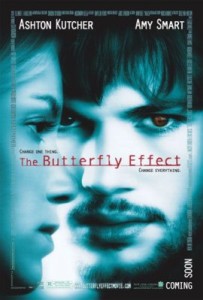
Eckels is an awesome time traveler because he represents the arrogance of time travel. Despite being a skilled hunter in his own time, he wishes to destroy the earth’s most terrifying creature in an act of showmanship. When confronted with the terror that is an actual T-Rex, he recognizes his hubris and promptly wigs out.

Every action Eckels makes is entirely selfish and self-motivated. In the end, Bradbury shows us where being an egotist gets you – a world that looks suspiciously like Biff’s in Back to the Future II.
Wade Linwood from Wade of Aquitaine by Ben Parris

Wade is a time traveler who suddenly finds himself in the early Middle Ages, once known as the Dark Ages. Similar to Burroughs’s John Carter, Wade travels across the astral plane; however, instead of using a mystery cave with magical gases, Wade is thrown across time as a combined effect of an acupuncture treatment and his synesthesia (crossed senses). Wade’s synesthesia is one of the strongest and most complex in existence, and his connection to another complex synesthete, Kreindia, draws him to her.
The novel as a whole manages to mesh fantasy, hard science, and factual history to create an interesting one-of-a-kind time travel series. Additionally, Wade makes for an even more interesting time traveler because his crossed senses create bizarre but engaging connections and skills. Also, he truly attempts to adjust to the time period instead of ruling it with his knowledge of the future. This sets him apart from the Connecticut Yankee’s Hank Morgan. More like Kindred’s Dana Franklin, Wade finds himself helping to preserve the most critical features of the past instead of trying to rewrite it.
The Time Traveler from The Time Machine by H.G. Wells
Considering the protagonist’s name is literally “The Time Traveler” and the novel coined the term “time machine,” this one pretty much had to be on the list. Our Time Traveler (who many people know as “George” from the 1960 movie version classic) finds a way to travel into the future using his time machine. Once there, what he discovers is disturbing: A reciprocal society where one group, the Eloi, appear to be in charge of the Morlocks, a class of people who live below ground, but the reality is the Eloi are in fact the Morlocks’ food source.
Despite the Traveler’s time machine being less epic than this time machine –

– the Time Traveler is one of the few travelers we see visit the future. Billy Pilgrim only visits the future once in the entirety of Slaughterhouse Five, which makes the Time Traveler our only real future traveler. He goes beyond anything he knows, understands, or has experienced. Future time travel is terrifying, and the Time Traveler faces it head on – making him the ballsiest of our time travelers.

